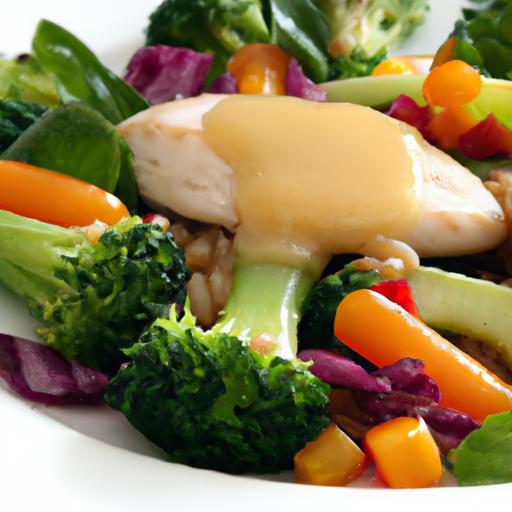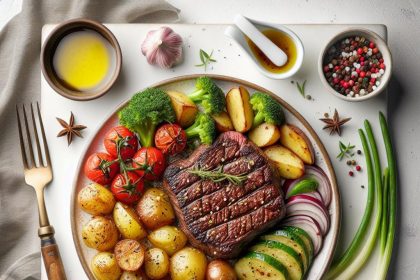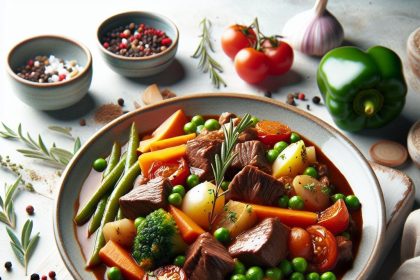Eggs are a staple in kitchens around the world-versatile, nutritious, and seemingly simple. Yet, the moment we glance at the date printed on the carton, questions arise: Are those eggs still good? How long past the expiry can they safely grace our breakfast plates? In this article, we’ll crack open the mystery surrounding eggs beyond their expiry date, exploring the science behind their shelf life, debunking common myths, and sharing practical tips to ensure you never waste a perfectly good egg again. Prepare to see your humble egg in a whole new light-because freshness isn’t always about the calendar.
Eggs Beyond Expiry: How Long Are They Still Good?
Eggs beyond expiry can still hold incredible culinary potential when you understand their subtle nuances of freshness, storage, and safety. Originating in humble kitchen experiments and countless breakfasts crafted to perfection, the secrets behind these delicate orbs reveal how thoughtful handling transforms near-expired eggs into golden, nutritious delights without compromise.
Prep and Cook Time
Preparation: 10 minutes
Cooking: Varies by use (5-15 minutes average)
Yield
Serves 2-4 comfortably, adaptable to portion size.
Difficulty Level
Easy to Medium, suitable for home cooks with basic to intermediate culinary skills.
Ingredients
- 6 large eggs (fresh or just beyond expiry, checked)
- 1 tbsp white vinegar (for poaching or egg clarity)
- 2 tbsp olive oil (for sautéing or frying)
- Salt and black pepper to taste
- Fresh herbs (chives, parsley, or dill for garnish)
- 1 cup cottage cheese or ricotta (optional filling for egg recipes)
Visual and Sensory Tests to Determine Egg Quality After Expiry
- Water Float Test: Place eggs in a bowl of cold water. Fresh eggs sink and lie flat, while eggs beyond expiry might tilt or float. Floating indicates internal gas buildup-discard floating eggs.
- Sniff Test: Crack the egg into a bowl. A fresh egg has a neutral smell; a sour or sulfuric odor signals spoilage.
- Appearance Check: Check for discoloration or unusual textures. Cloudiness in the white is typical and often harmless, but dark spots or a pinkish hue require disposal.
- Yolk Integrity: A firm, round yolk surrounded by thick white confirms quality. Breaking yolks or watery whites suggest degradation.
Safe Storage Practices That Extend Egg Usability Beyond the Label
Storing eggs properly can extend their usability well past the printed expiry:
- Keep eggs refrigerated at or below 4°C (39°F), ideally in their original carton to minimize moisture loss and protect from odors.
- Place eggs with pointed end downwards to maintain the yolk’s centered position.
- Avoid temperature fluctuations by storing eggs in the main body of the refrigerator, not the door.
- Freeze eggs (whole or separated) if approaching expiry but intended for later cooking – crack and whisk whole eggs with salt or sugar before freezing.
Creative Ways to Use Eggs Past Their Expiry Without Compromising Safety
Once you’re confident eggs beyond expiry are safe, employ them in ways that maximize flavor and texture:
- Egg-based sauces and custards: Use these eggs in gently cooked dishes like hollandaise or crème brûlée, where temperature control ensures safety.
- Baked goods: Incorporate in cakes, muffins, or bread where eggs are fully cooked and dispersed, thus reducing spoilage risks.
- Hard-boiling: A reliable method to use older eggs-hard-boiled eggs remain tasty and safe for up to one week refrigerated.
- Frittatas and scrambles: These methods allow flexibility in cooking timing, comprehensively heating eggs through.
- Pickled eggs: A delicious way to extend usability; peel hard-boiled eggs and immerse them in vinegar-brine solutions.
Instructions for a Simple & Inspiring Scrambled Egg Dish Using Eggs Beyond Expiry
- Begin by cracking 6 large eggs into a bowl and seasoning gently with salt and black pepper.
- Whisk until the yolk and white are fully blended, creating a uniform yellow mixture.
- Heat 2 tbsp olive oil in a non-stick skillet over medium heat.
- Pour in the egg mixture and allow it to begin setting around the edges-about 1 minute.
- Using a spatula, gently push the eggs from the edges to the center, forming soft curds. Continue until eggs are just cooked but still glossy and creamy, about 3-5 minutes.
- Remove from heat and sprinkle with fresh herbs to enhance aroma and visual appeal.
Tips for Success
- Use the float and sniff tests for reassurance before cooking.
- For eggs that smell slightly but not foul, cooking immediately can reduce safety concerns.
- If unsure about using beyond expiry eggs for raw applications, always opt for fully cooked dishes.
- Variations: Add diced tomatoes or sautéed mushrooms for texture and nutrients.
- Make-ahead: Scrambled eggs can be reheated gently with a splash of milk for moisture.
Serving Suggestions
Present your scrambled eggs on a rustic wooden board alongside toasted sourdough bread, topped with a few sprigs of fresh herbs like dill or chive. Complement with a side of fresh fruit or lightly sautéed greens. Pairing with a vibrant salad drizzled with lemon vinaigrette balances richness beautifully.
| Nutrition Per Serving | Calories | Protein (g) | Carbs (g) | Fat (g) |
|---|---|---|---|---|
| Scrambled Eggs (2 eggs) | 180 | 12 | 1 | 14 |
| Olive Oil (1 tbsp) | 120 | 0 | 0 | 14 |
For in-depth knowledge on egg storage and food safety, visit the USDA Food Safety and Inspection Service. To explore more creative egg recipes, check out our Creative Egg Dishes collection.

Q&A
Q: Can eggs really be good after their expiration date?
A: Surprisingly, yes! Eggs often remain safe and edible well beyond the printed expiry date, thanks to their natural protective shell and membrane. The date is usually a guideline for peak freshness, not a strict deadline.
Q: How can I tell if an egg is still good after the expiry date?
A: There are simple at-home tests! The classic water test involves placing the egg in a bowl of cold water. If it sinks and lies flat, it’s fresh. If it stands upright or floats, it’s older-floating means it’s time to toss it. You can also do a sniff test; a bad egg emits a sulfur-like odor.
Q: What happens to eggs as they age beyond the expiry?
A: Over time, eggs lose moisture and carbon dioxide through their porous shells, causing the egg white to thin and the yolk to become flatter. This affects texture and cooking properties but doesn’t necessarily mean the egg is unsafe.
Q: Are there any risks in eating eggs past their expiry date?
A: While many eggs last beyond the expiration, there’s a slight increased risk of bacterial contamination-especially salmonella. Proper storage in the refrigerator and careful inspection are essential to minimize risks.
Q: How long past the expiry date can eggs realistically last?
A: Stored properly in the fridge, eggs can last 3 to 5 weeks beyond the pack date. Always verify freshness before use, as shelf life depends on handling and storage conditions.
Q: Does the type of egg affect its longevity after expiry?
A: Yes! Farm-fresh, non-refrigerated eggs won’t last as long as commercially refrigerated eggs because of different handling and storage. Also, eggs with more intact coatings or from well-cared-for hens tend to have a longer shelf life.
Q: What’s the best way to store eggs to extend their freshness?
A: Keep eggs in their original carton on an interior fridge shelf rather than the door. The carton helps prevent odor absorption and moisture loss. Avoid temperature fluctuations to maintain quality.
Q: Can eggs beyond expiry still be used in baking or cooking?
A: If the eggs pass freshness tests and show no signs of spoilage, they’re generally fine for cooking and baking. However, for recipes where egg quality impacts texture or rise (like soufflés), fresher eggs yield better results.
Q: What should you do if you’re unsure about an egg’s safety after expiry?
A: When in doubt, throw it out! Your nose and the float test are your best friends. An egg might look okay but still harbor harmful bacteria, so safety first.
Q: Can freezing eggs help extend their shelf life past expiry?
A: Absolutely! You can beat the clock by freezing eggs-either whole (beaten), whites, or yolks. Just be sure to freeze and label them promptly; frozen eggs last several months, giving you flexibility beyond expiry limits.
Future Outlook
As the humble egg sits quietly in your fridge, it holds more secrets than you might think-secrets about freshness, safety, and culinary magic beyond its printed date. Understanding how long eggs remain good past their expiry isn’t just about avoiding waste; it’s about unlocking the potential of this versatile ingredient with confidence and care. So next time you question that carton’s worth, remember: with a few simple tests and a dash of know-how, you can give your eggs a well-earned encore before they truly say goodbye. After all, great meals-and great eggs-are often about timing, patience, and a little bit of curiosity.








